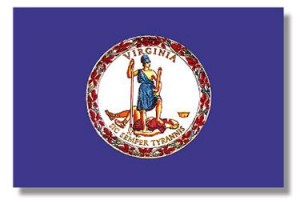Qui Tam Complaint Process Part II
This is Part II of a multi-part post about the importance of the qui tam Complaint in FCA litigation.
Part I of the post started our discussion with the importance of being clear and concise without being long and wordy, and left off in the middle of one of the most important concepts — namely, weaving the facts and the law together in the allegations of the Complaint.
WEAVE THE FACTS AND THE LAW TOGETHER IN YOUR COMPLAINT
Like any piece of effective legal writing, a well done FCA Complaint does not simply tell the reader that the defendant broke the law; a well done FCA Complaint shows the reader that the defendant broke the law and then lets the reader draw his or her own conclusions.
The best way to do that is to weave the facts and the law together in your Complaint. While I think this is important in any civil litigation it is even more important in the qui tam context because modern governmental operations and payment systems are complex, and they seem to get more complex each year.
On top of that, the substantive provisions of the VFATA and/or FCA prohibit seven categories of rather broadly defined misconduct. A simple straightforward false claim may involve submitting an invoice to the United States for work not performed under 31 U.S.C. § 3729(a)(1)(A), but the statute goes well beyond that and includes reverse false claims, keeping and maintaining false records and/or statements, and so forth.
Some of these kinds of claims are rather complicated both factually and legally. I therefore think it generally wise to include the specific conduct that violates the law specific provision of the statute together. An example from an old case of mine is included here. If you allege that the FCA is violated by the knowing retention of an overpayment, include those allegations in a specific count labeled “Count One – Knowing retention of an overpayment.”
If a Complaint alleges a series of violations arising from one single set of legal principles – for example, accounting fraud in a costs plus contract – I think it also makes sense to include one portion of the Complaint that set forth the clear and unequivocal legal standards that apply to the whole Complaint.
If the reader is left with fifteen or twenty pages of allegations and one page with at the end with all of the statutory provisions violated by the actions in the previous pages, the reader is left to wonder what conduct applies to which statutory provision…and if the reader is left wondering about anything in your Complaint, you are started off on the wrong foot.
A WELL-DRAFTED COMPLAINT SHOULD NORMALLY AVOID ADJECTIVES AND ADVERBS, ESPECIALLY IN QUI TAM/FALSE CLAIMS ACT LITIGATION
Okay, so inevitably we have to discuss a few points of grammar. As much as I would like to claim to be a grammarian, I cannot in good faith make such a claim. But I do know enough about grammar to know that adjectives and adverbs have no place in an FCA Complaint.
If one follows the above step and weaves the facts and the law together throughout the Complaint, there will be no need for adjectives and adverbs. False claim act litigation deals with false and/or fraudulent claims to the government for money. False claims act cases will always, therefore, deal with conduct that reflects poorly on the defendant, and you will need to make that clear in your Complaint.
But under no set of circumstances should it be necessary to use adjectives or adverbs in preparing a False Claims Act Complaint. In fact, I would go one step further and say that adjectives and adverbs have a place in a civil Complaint if – and only if – they are necessary to state a claim for punitive damages in a common law cause of action. There it is necessary – in Virginia at least – to allege that the defendant acted wantonly, oppressively, and so forth.
Such allegations are not necessary in a qui tam Complaint, and you should avoid them like the plague. The heavy of use of adjectives and adverbs leaves most readers with the distinct impression that the case is not really all that strong.
Stay tuned for more …
